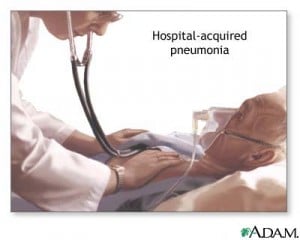Most people dislike getting sick. On the rare occasions that I get sick, I am reminded why I absolutely detest getting sick. For one thing, you’ll be forced to take a sick leave from work and rest at home. If you require a longer period to recuperate, boredom will drive you up against the wall. If you’re a workaholic, the nonproductivity is going to drive you nuts. Still, recuperating at home is better than staying at the hospital where there is a chance for you to get hospital acquired infections (HAI).
What are the Risk Factors of Acquiring HAI?
Any patient who is admitted to the hospital is at some sort of risk of getting a hospital acquired infection. In fact, getting HAI usually happens about 2 or 3 days after hospital admission. Risk factors that will increase the chances of a patient acquiring HAI include the length of stay. The longer one stays in the hospital, the longer the patient will be exposed to the chances of getting other diseases. An inadequate handwashing technique particularly by the hospital staff will also increase the risk factor. Antibiotics are used to counter bacteria and help a patient heal. However, overusing it can render the medicine less effective. Medical procedures which require equipment like urinary catheters or IV drips, to name a few, can also expose patients to the possibility of infection. There are equipment, however, like IV access ports that will help disinfect and prevent contamination from spreading through IV drips.
What Can be Done to Control the Likelihood of HAI?
As all patients are susceptible to contracting HAI, there is a need to control and reduce the spread of infection. One of the things that can be done is for the hospital to enforce strict procedures and policies with regards to infection control. Frequent and proper hand washing techniques should be observed not only by all hospital staff but all patients as well. Antibiotic medication should be used with caution lest it will be rendered ineffective in fighting infection. Even these simple steps come a long a way in the controlling and reducing the spread of hospital acquired infections.
How Can You Reduce Your Risk of HAI?
Reducing your risk of acquiring HAI begins even before hospital admission. If you are a smoker, make sure you stop smoking before going to the hospital as it increases your chances of getting lung infection. Maintaining a healthy weight goes a long way in helping you avoid infection as overweight people are at higher risk and more prone to acquiring infection. Make sure your doctor is well informed about all your illnesses–whether existing or recent–as certain factors can exacerbate simple illnesses and make them worse. Thus, it’s very important that your physician or the hospital staff know to what degree you are not well. If you have diabetes, try to keep your sugar levels under control because the higher they are, the more susceptible you are to infection, particularly if you have a wound that is still healing.

